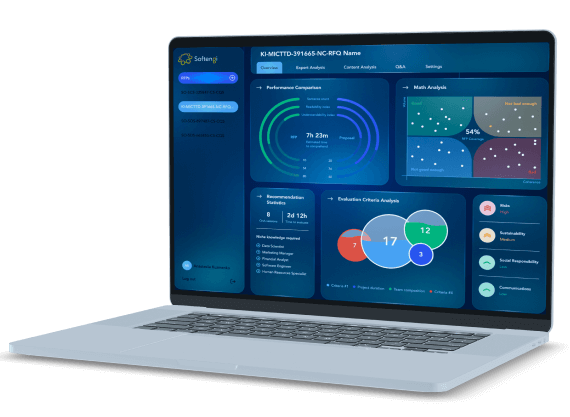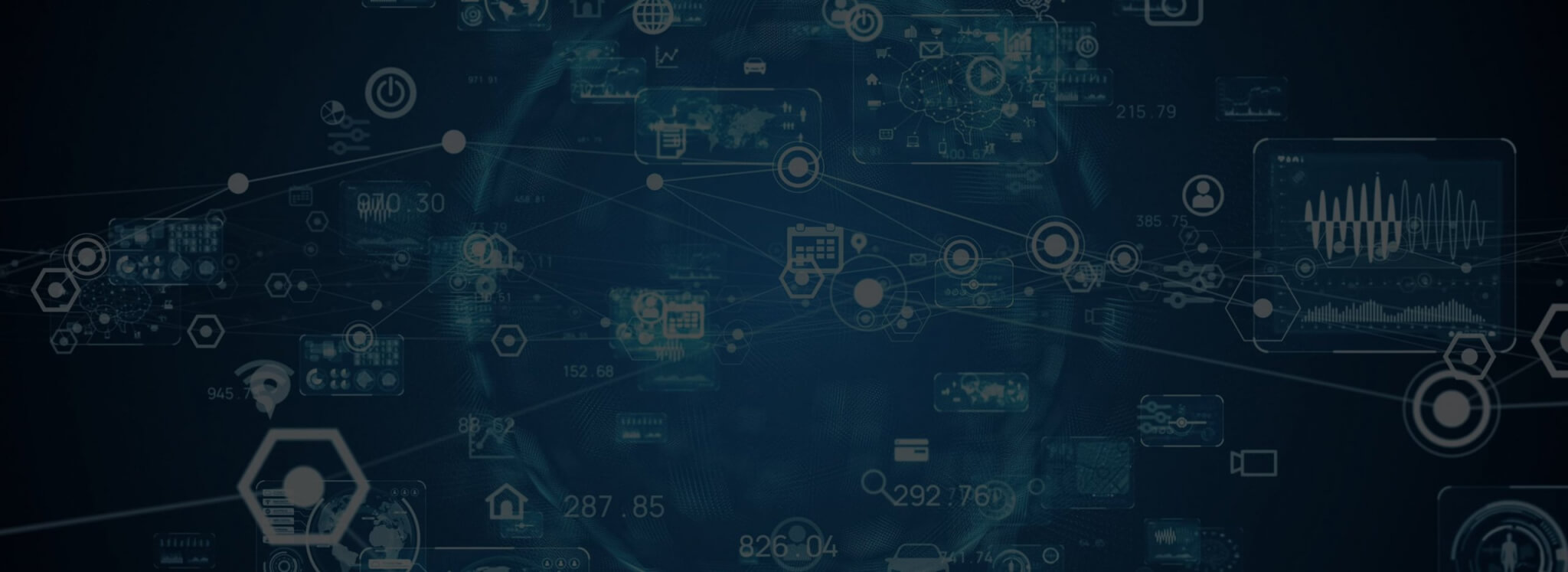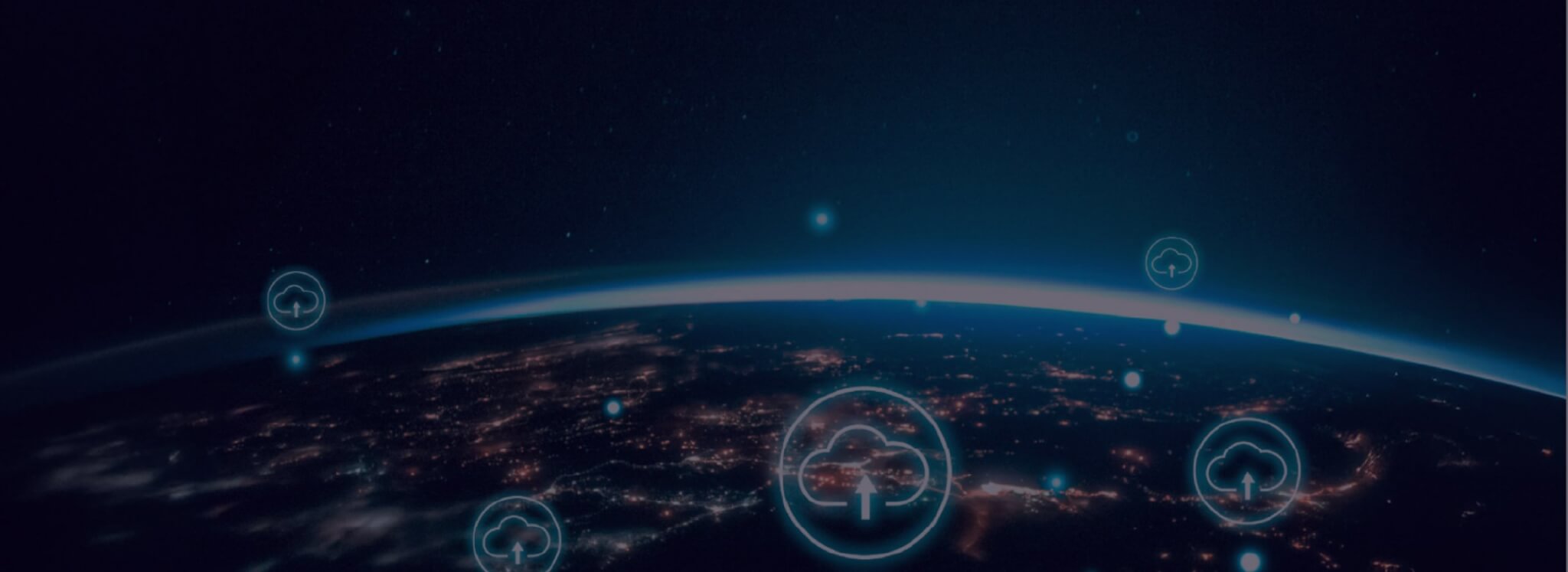Procurement projects are becoming increasingly complex. Even for seemingly simple purchases, AI in procurement is already required to simulate the feasibility of procurement and determine if they are viable. The results of such simulations allow companies to assess the impact on internal projects.
To stay ahead of the competition, improving procurement operations is key. A company seeking a competitive advantage in its products and services must adopt advanced procurement processes as they become more specialized. Ultimately, it will require redefining the roles within the procurement team and reshaping how procurement interacts with other departments across the organization.
Traditional Procurement Approach No Longer Works
The complexity of projects and procurement items is increasing, so the traditional approach to procurement is losing its effectiveness. Contract types are also becoming more intricate, especially in the share economy model, where suppliers may not always be open to offering specialized services or products. They require understandability, readability, and clarity.
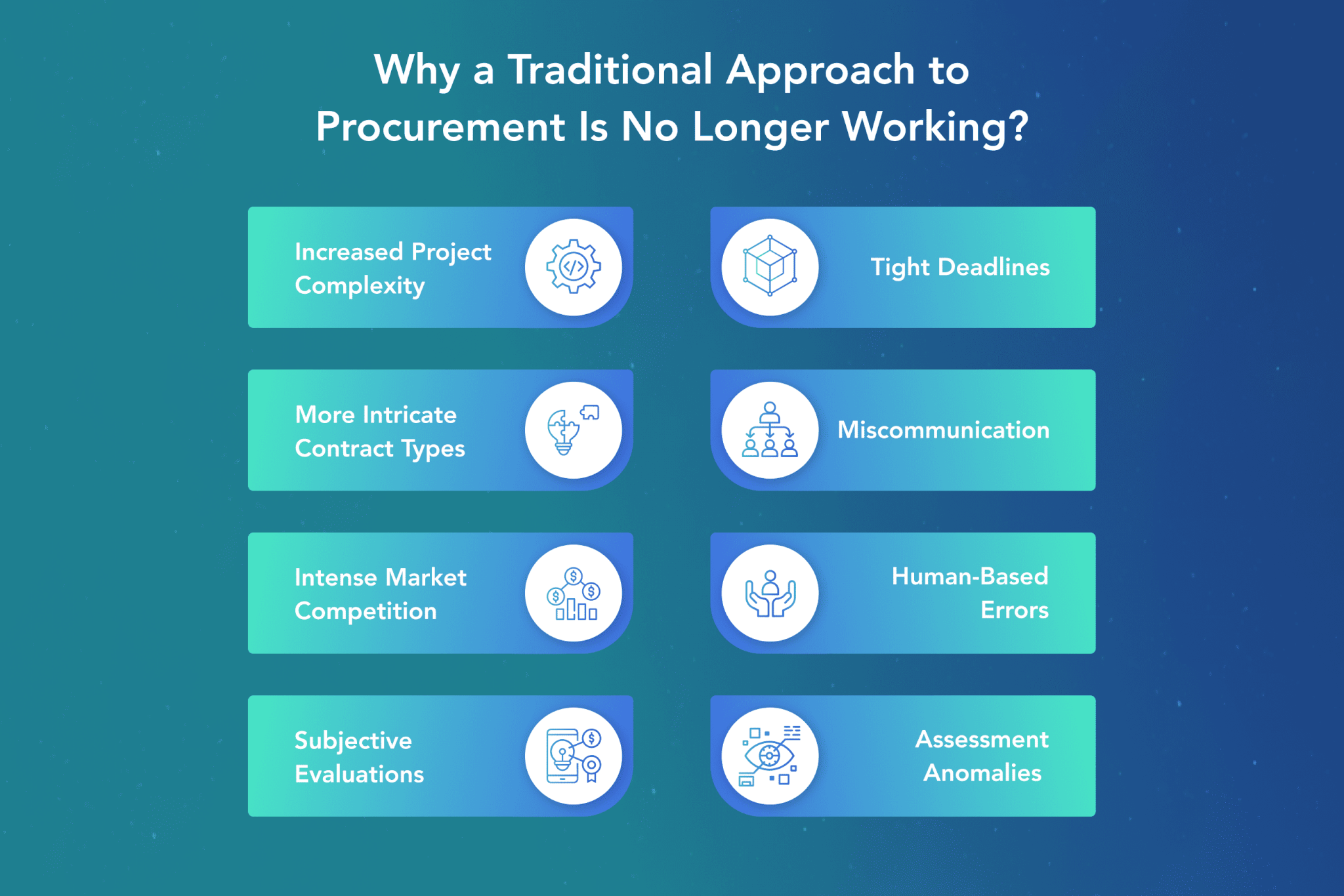
Softengi believes that implementing AI procurement into traditional processes will bring only limited benefits. As the complexity of projects grows, it will become impossible to source them effectively using conventional methods – there will be issues with timeliness, quantity, quality, and overall efficiency.
With the help of AI, companies should transform their procurement processes to steer away from traditional methods in the direction of a more advanced approach.
Modern Procurement Challenges Require Modern AI Solutions
Softengi regularly applies to public tenders to build applications for clients worldwide. In our experience, human-based procurement is failing, subject to increasing time and costs and decreasing effectiveness. We’ve asked our AI in procurement visionary Gennadiy Axion (CEO) to share his expert opinion on the modern challenges that companies and procurement teams face in a new market reality:
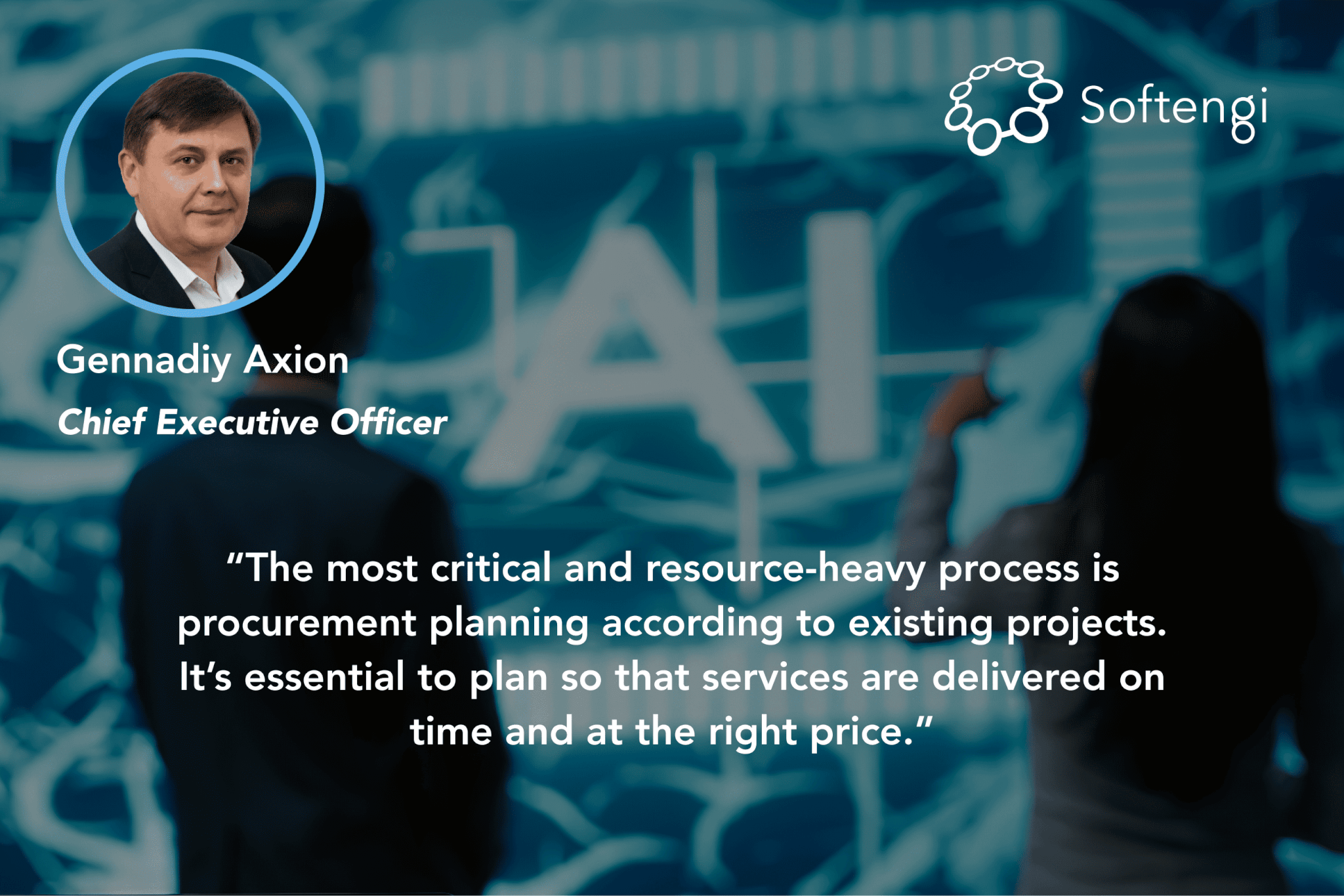
Here are the top 5 procurement challenges that companies face nowadays, according to Gennadiy Axion:
- The number of potential suppliers in procurement is traditionally limited by the time and cost of processing and evaluating them. While you could invite fifty suppliers, it is impossible to process fifty proposals without significant financial and time investments.
- In standard procurement processes, efficiency could only be improved by involving more traditional suppliers, but this requires evaluating them – something limited by human capacity. More proposals mean needing more people to assess them. However, scaling the team isn’t always feasible.
- There are now procurement needs where it’s unclear how to even find suitable suppliers.
- Non-traditional performance metrics are emerging, and price or technical proposals are no longer the primary criteria for certain projects. For example, when it comes to emissions, neither cost nor complexity is the key factor – the focus is on reducing the company’s overall environmental impact.
- The growing complexity of company-initiated projects demands greater sophistication in the procurement process toward a more complex approach.
In typical procurement, one buyer might handle five tenders, two buyers could handle nine, and three buyers might manage twelve. This traditional multi-stage qualification process was designed to handle more proposals. With smart procurement, this is no longer necessary as machines don’t get tired and can evaluate proposals much faster.
In contrast, an AI procurement platform can process over a hundred tenders or proposals. For regular procurements, this opens up opportunities to enhance efficiency by engaging more potential suppliers.
For complex procurements, there are higher demands on suppliers, equipment, and services – from finding the supplier to the evaluation stage. Today, these challenges can be solved with AI procurement agents.
How AI Can Revolutionize Procurement
To address the abovementioned procurement issues from the point of view of business, we asked Softengi’s CTO, Illia Gandzeichuk, whether using AI procurement software can streamline the most essential aspects of sourcing.
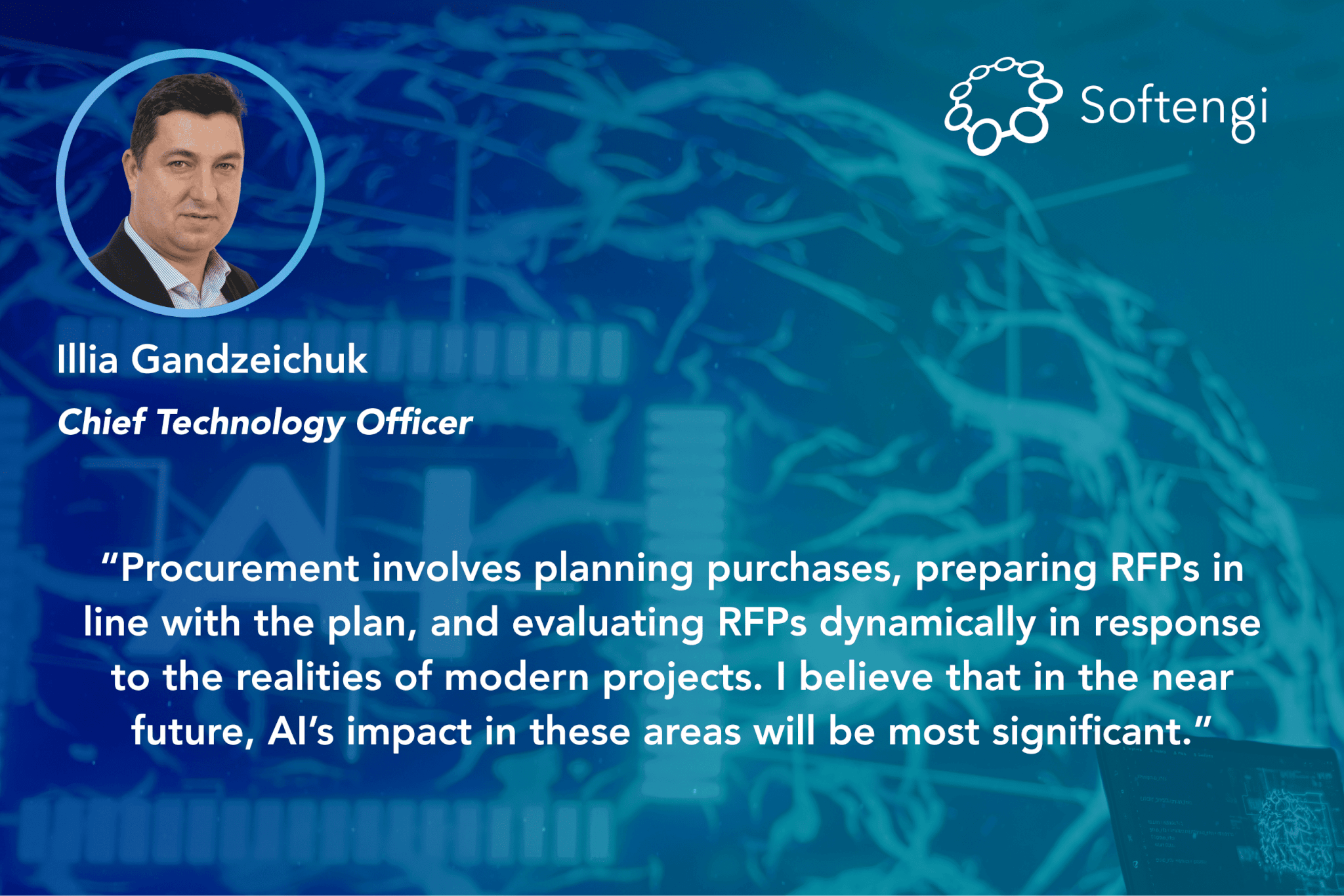
Here’s a breakdown from Illia Gandzeichuk regarding AI implementation in procurement:
- RFP Planning – Modern methods allow RFP and proposal data to be stored as vectors in a language-agnostic knowledge base. Even unsuccessful proposals become company assets since they contain valuable insights. This approach enables a dialogue-based procurement chatbot, accessible to various stakeholders across different countries and offering answers.
- Assistance in Creating RFPs – AI can simulate subject matter expert evaluations to assist in RFP creation and analyze the quality of the RFP.
- RFP Quality Assurance – A complex index with more than 30 indicators is used to evaluate the RFP quality, check for non-compliance with procurement requirements, and bolster document proofreading. In addition, AI gives suggestions as to how to improve the overall RFP quality.
- Automatic Proposal Evaluation – Based on the RFP, AI can automatically evaluate proposals. All these features are implemented within bidXplore – an Autonomous AI Procurement Tool.
From Subjective Human-Based Decisions to Data-Driven Objective RFP and Proposal Evaluation
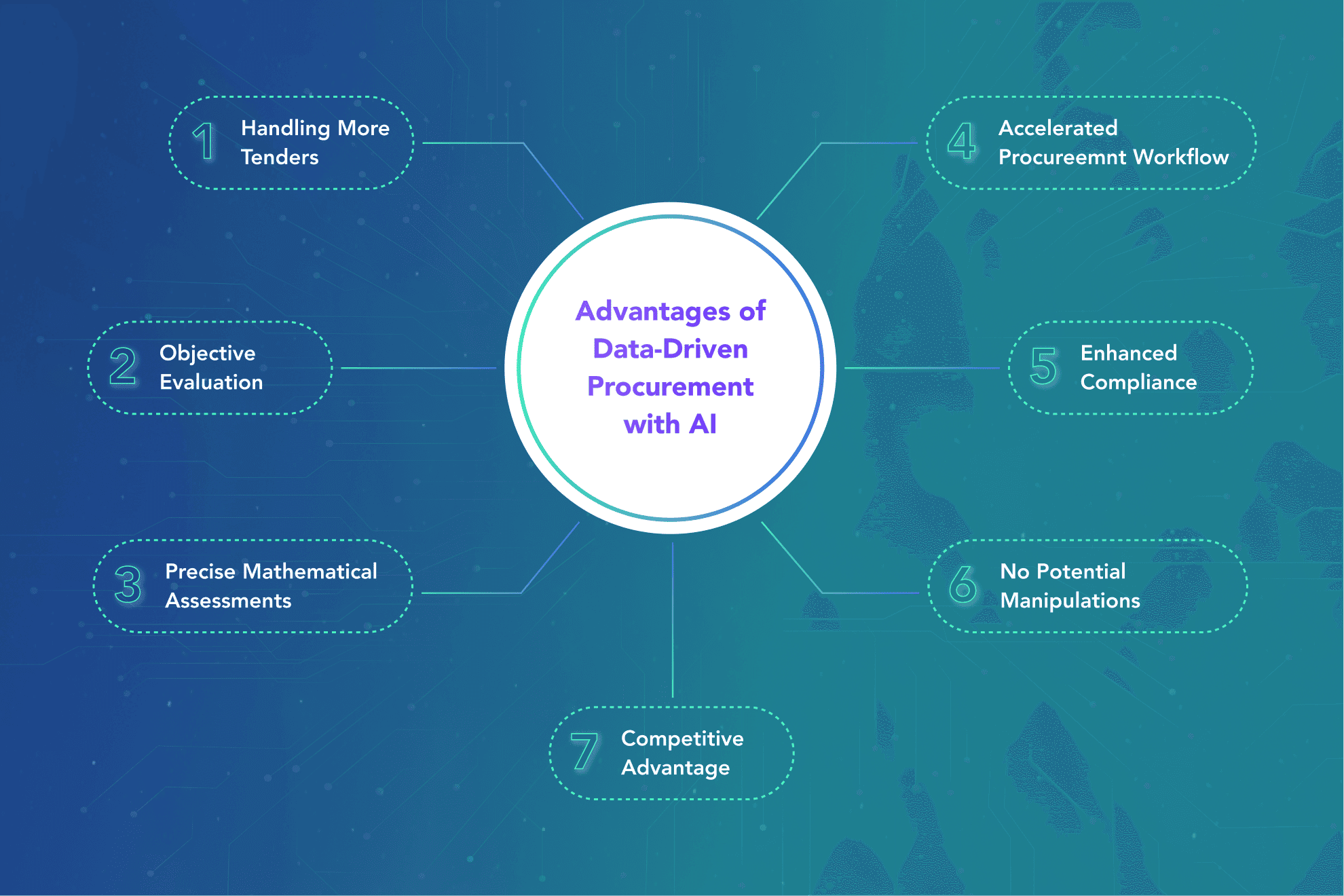
People often don’t understand how to effectively use artificial intelligence procurement. They are accustomed to making decisions based on reading documents that are provided to them, which is inherently subjective. There’s no way to verify a supplier’s qualifications against the RFP or to determine how well their proposal aligns with the requirements.
AI for procurement is not about automating traditional processes – that approach is outdated. Instead, it represents a modernized, data-driven method for executing tenders, providing comprehensive and accurate information for decision-making. We are shifting away from expert-based decision-making toward a more data-driven approach, where aspects that were previously immeasurable can now be quantified.
Procurement AI is not about human interpretation or subjective expert opinions, but precise mathematical assessments of key meanings. This eliminates the risk of human error and manipulation while providing a more accurate evaluation of supplier information. If anomalies arise in the assessments, users can analyze competitive proposals to see how these deviations impact the procurement process.
Bottom Line
As an Autonomous AI Procurement Solution, bidXplore can objectively evaluate proposals with clear metrics. The platform also checks internal company policies and standards, automatically ensuring compliance with these regulations. Additionally, the system highlights the differences between competing proposals using numerical data based on the distances between meanings.



